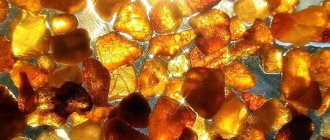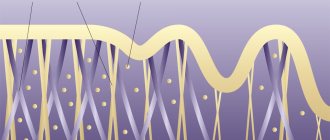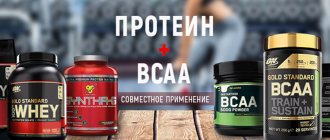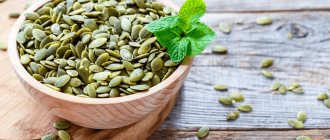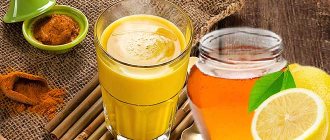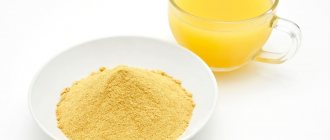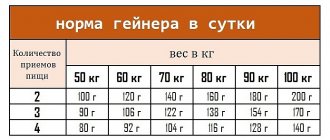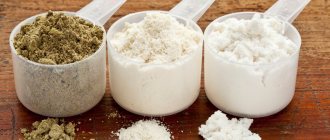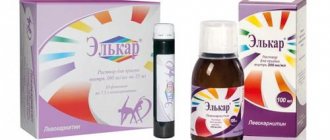Tryptophan and the nervous system
Supplementation of this amino acid to the diet is considered as a treatment for depression and sleep disorders, mainly due to tryptophan's connection with the synthesis of serotonin (the happy hormone) and melatonin (the sleep hormone). In addition, tryptophan supplements are used as an additional treatment to help treat cognitive disorders, depression, or neurodegenerative diseases.
Decreased serotonin secretion, in turn, is associated with autism spectrum disorder, obesity, anorexia and bulimia nervosa, and other diseases presenting symptoms of peripheral diseases. The literature strongly suggests that tryptophan plays a significant role in the proper functioning of the brain-gut axis and immunology.
Available information suggests tryptophan to be an important dietary component due to its role in the serotonin pathway [1].
Functions of tryptophan
Is a substrate for the synthesis of Niacin (vitamin B3)
Tryptophan, which we get from food, is metabolized into niacin (vitamin B3). This process occurs in the liver. Vitamin B3, on the other hand, is a B-complex vitamin. It takes part in all processes where fat and sugar are converted into energy. Amino acid metabolism cannot occur in the body without niacin.
The hormone serotonin is synthesized from tryptophan
Tryptophan is a participant in the reaction of the formation of the “happiness hormone” - serotonin. This hormone helps normalize and regulate a person’s appetite, sleep and mood. Most of the serotonin supply is located in the digestive tract. Serotonin is synthesized from tryptophan using hydroxylases (a group of enzymes).
Helps gain muscle mass
Since this amino acid acts as a material for the construction of proteins, its intake will be necessary during the period of weight gain.
In the presence of tryptophan, the pituitary gland is able to synthesize more growth hormone (anabolic hormone), which has a positive effect on muscle gain and accelerates protein synthesis.
Helps regulate appetite
Tryptophan is indispensable during drying, as it helps normalize appetite by reducing the feeling of hunger. It also promotes quick satiety with food and reduces cravings for high-carbohydrate foods. This occurs due to the normal secretion of serotonin. And now food is not a source of pleasure for you, but only a source of necessary calories, nutrients and components. This is possible only with normal serotonin synthesis, which is facilitated by tryptophan.
Vitamin B6 is an assistant in the synthesis of serotonin and niacin from tryptophan. Vitamin C, magnesium and folic acid are also involved in tryptophan metabolism. Therefore, if the body does not receive these components, the metabolism of serotonin and niacin slows down, or may even be disrupted. Therefore, tryptophan intake must be accompanied by the necessary amount of these substances to ensure the full functions of this essential amino acid.
Tryptophan metabolism
The WHO recommended daily intake of tryptophan from food is 4 mg/kg (1/2 to 2 g per day). In addition, it is important to know that the entry of tryptophan into the brain depends on the amount of free tryptophan in the blood and on the concentration of other amino acids (such as BCAAs) that compete with tryptophan for transporters used to cross the blood-brain barrier.
The enzyme tryptophan hydroxylase, which catalyzes the conversion of tryptophan to 5-hydroxytryptophan (5-HTP), can be inhibited by various factors such as stress, insulin resistance, vitamin B6 deficiency, or magnesium deficiency. For this reason, magnesium and vitamin B6 are often used together for nervous system disorders. Their deficiency prevents tryptophan from converting into 5-HTP and subsequently into serotonin [2].
FAQ
No, because this will prevent their effects on the development of central fatigue, which are opposite for BCAAs and L-tryptophan. You need to decide what is more important at a given moment in time - the ability to cope with pain during exercise or the development of central fatigue. Tryptophan is a precursor for the neurotransmitter 5-hydroxytryptamine (5-HT or serotonin), which is involved in the development of fatigue. An increase in the content of free tryptophan in the blood plasma leads to an increase in the rate of tryptophan entry into the brain. This should result in higher levels of 5-HT, which can cause central fatigue. Central fatigue is associated with clinical conditions such as chronic fatigue syndrome and postoperative fatigue. Elevated plasma free tryptophan results in an increased ratio of free tryptophan to branched-chain amino acids (BCAAs), which compete with tryptophan for entry into the brain across the blood-brain barrier.
Plasma concentrations of these amino acids have been measured in patients with chronic fatigue syndrome (CFS) before and after exercise (Castell et al., 1998) and in patients undergoing major surgery (Yamamoto et al., 1997). In patients with CFS, the concentration of free tryptophan in plasma before exercise was higher than in the control group. This may indicate abnormally high levels of brain 5-HT in CFS patients, leading to persistent fatigue. In the control group, free tryptophan in blood plasma, as expected, was increased AFTER maximum physical activity, when fatigue should be felt. The apparent inability of CFS patients to change plasma free tryptophan concentrations or the free tryptophan/BCAA ratio during exercise may indicate increased sensitivity of brain 5-HT receptors, as has been demonstrated in other studies (Clear et al., 1995).
During postoperative recovery after major surgical interventions, the concentration of free tryptophan in the blood plasma was markedly increased compared to the baseline level; The plasma free tryptophan/BCAA ratio was also increased after surgery. Providing BCAA improved mental performance in athletes after endurance training (Blomstrand et al., 1995, 1997). It has been suggested that BCAA supplementation may help counteract the effects of increasing plasma free tryptophan and thus improve the condition of patients during or after certain clinical stress conditions (exertion or surgery).
Source: Adv Exp Med Biol. 1999;467:697-704. The Role of Tryptophan in Fatigue in Different Conditions of Stress. LM Castell, T Yamamoto, J Phoenix, EA Newsholme.
Tryptophan as a precursor to serotonin
Tryptophan is the only precursor to the neurotransmitter serotonin. Supplemental tryptophan may enhance serotonin neurotransmission to produce therapeutically important effects and reverse serotonin deficiency. Anorexia nervosa (AN), an eating disorder associated with high rates of psychiatric comorbidity, including psychosis, hyperactivity, depression and anxiety, has the highest mortality rate of all psychiatric diseases. Evidence suggests that excessive dieting and food restriction may reduce tryptophan and thus serotonin levels in the brain in patients, causing depression, psychosis and hyperactivity. It has been found that, in general, patients with depression are deficient in tryptophan compared to healthy subjects. Two intervention studies examining the effects of L-tryptophan or 5-HTP supplementation on depression found that both tryptophan and 5-HTP were superior to placebo in relieving depressive symptoms [3].
In one study, the subjects were male patients suffering from alcoholism and associated depression and sleep disorders. Subjects taking L-tryptophan 3 g per day for 4 days reported significantly lower levels of depression than participants receiving placebo [4].
Niacin
Niacin, which is also called nicotinic acid or vitamin PP, is involved in the metabolism of proteins, fats, amino acids, and in a number of redox reactions (in particular, lipid metabolism). Niacin also lowers cholesterol and dilates blood vessels (including in the brain). In medicine, it is used to treat a number of diseases - from gastrointestinal disorders to liver cirrhosis. In the context of sports, niacin is essential for athletes as it is involved in more than 60 metabolic reactions. By dilating blood vessels, niacin improves muscle nutrition, increasing performance. As a result of stimulation of blood circulation in the brain due to additional intake of niacin, memory and coordination of movements improves.
The effect of tryptophan on sleep
The earliest experimental results convincingly demonstrated the sleep-inducing effects of L-tryptophan in doses ranging from 1 to 15 g at bedtime. But a later laboratory study expanded the dose-response curve by comparing even smaller doses of 1/4, 1/2, and 1 g of L-tryptophan versus placebo in 15 subjects with moderate insomnia (sleep latency greater than 30 minutes). One gram of L-tryptophan significantly reduced sleep latency, but lower doses produced a trend in the same direction. Stage IV sleep was significantly increased by 1/4 g of L-tryptophan at bedtime. Thus, the effective dosage of tryptophan taken before bed may be within 1 gram [5].
Tryptophan content in food
Tryptophan is found in the following foods:
- In fish and seafood: black caviar, red caviar, salmon, mackerel, carp, squid.
- In meat products: chicken, turkey, beef, lamb, pork, eggs.
- In dairy products: cheese, milk, cottage cheese.
- In cereals and legumes: millet, oatmeal, pearl barley, buckwheat, peas, beans, soybeans.
- In nuts.
- Tryptophan is also found in chocolate, mushrooms and dried apricots.
Tryptophan is also produced by some sports nutrition manufacturers. For example:
- NOW: L-Tryptophan 500 mg
- Scitec Tryptophan
The effect of tryptophan on appetite
Gut hormones such as cholecystokinin and glucagon-like peptide-1 (GLP-1) play a role in satiety factors. Strategies to increase the secretion of satiety hormones may provide a therapeutic approach to the treatment of obesity.
One study examined the role of oral tryptophan at dosages of 0.52 g and 1.56 g on the secretion of these hormones in individuals without diabetes. At a higher dose, L-tryptophan stimulated the release of cholecystokinin, induced a significant delay in gastric emptying, and caused a slight increase in GLP-1 secretion [6]. In another study in normal-weight and overweight men, 3 g of tryptophan consumed 15 minutes before a carbohydrate meal reduced postprandial blood glucose by slowing gastric emptying [7].
Later experiments revealed that tryptophan taken within 1-1.5 g affects both intestinal motility and hormonal function, significantly reducing energy consumption. The strong inverse correlation between energy intake and plasma L-tryptophan suggests that, in addition to intestinal mechanisms, the direct effects of circulating L-tryptophan also mediate its inhibitory effect on food intake [8].
Another interesting study linked amino acid intake to large-scale changes in brain networks involved in regulating metabolism. A direct connection between satiety hormones and brain regions involved in metabolic regulation was confirmed by a positive correlation between brain activity in the insular cortex and plasma insulin levels after oral administration of L-tryptophan (within 1 g). Supplementation with L-tryptophan (or L-leucine) immediately affected specific brain networks that support the food-reward system and appetite regulation [9].
Tryptophan for interval training
Team sports players perform better on the field if they take 600 mg of the amino acid tryptophan daily. Scientists from the University of Barcelona came to this conclusion after conducting experiments on students involved in sports.
Tryptophan and exercise
Discussions among physiologists about whether tryptophan enhances performance tend to end in deadlock. Tryptophan is a precursor to the neurotransmitter serotonin. If you have more serotonin in your brain than usual, you feel good. Your brain becomes less sensitive to pain, and you will be less distracted by unpleasant thoughts and unnecessary information. Thus, supplementation with tryptophan may create a condition that also helps improve athletic performance.
Conflicting Research
In the 1980s, this idea inspired researchers at the University of Barcelona to conduct an experiment with students playing sports. Students were required to run at an intensity that was 80% of their maximum oxygen consumption. At this level of intensity, you can no longer hold a conversation without getting out of breath. When subjects were given 600 mg of tryptophan before running, they ran almost fifty percent longer than after taking a placebo. In 1992, researchers from the Norwegian University of Sport and Physical Education repeated the experiment with several modifications.
They gave subjects 1200 mg of tryptophan and forced them to work at 100% of their maximum oxygen consumption. This had no effect. [10]
Dutch researchers in the mid-nineties also did not record any effect. They gave their subjects tryptophan not before, but during physical activity. [11] But one person who is most reluctant to believe that tryptophan can improve athletic performance is the researchers who believe in the ergogenic effects of BCAAs. These amino acids are generally believed to reduce fatigue during endurance events because they interfere with the entry of tryptophan into the brain, thereby preventing its conversion to serotonin. [12] [13] [14]
According to this theory, the brain can only absorb a limited amount of amino acids. During intense physical exercise, muscles take all amino acids from the blood except tryptophan. As a result, the brain absorbs more tryptophan and converts it into serotonin, and serotonin causes athletes to feel tired. Supplementing with BCAA inhibits the brain's uptake of tryptophan, reducing fatigue and increasing endurance, while supplementing with tryptophan only leads to negative effects, say BCAA proponents.
Research on the effect of tryptophan
Spanish researchers who demonstrated the performance-enhancing effects of tryptophan in 1988 conducted another experiment decades later. Scientists forced 20 sports students aged 20-22 to do an hour-long interval training on a bicycle ergometer. The training session simulated the training load of team sports players during a match.
First, students cycled for 10 minutes at 50% of their VO2max (maximum oxygen consumption level). They then drove for exactly 30 seconds at top speed. The subjects had to repeat this cycle three more times. Finally, the students cycled for another 20 minutes at 50 percent of their VO2max.
The researchers ran the test twice. In one case, students took 2 capsules containing 300 mg of tryptophan for three days before the test and on the day of the test itself (two hours before the start of the cycle). In total, they took 600 mg of tryptophan per day.
Results of the effect of tryptophan on interval training
The supplement worked. The figure below shows that during half of the burst 30-second sessions, tryptophan resulted in greater average power and greater peak power. Simply put, athletes were able to pedal harder when they took tryptophan.
Moreover, subjects walked more distance in the last 20 minutes of the test when they took tryptophan. This can be seen in the picture above.
Researchers have found that supplementing with tryptophan reduces the increase in fatigue. In experiments where tryptophan had no effect, it is possible that too high a dose of tryptophan was used or that it was not given sufficiently in advance of the exercise. The authors of this study suggest that tryptophan may not only be a precursor to serotonin, but also related compounds that do not cause fatigue and may actually have stimulating effects.
Can tryptophan change behavior?
If you take a few grams of the amino acid tryptophan every day, you will behave in a more dominant manner. This follows from a human study that Canadian psychologists published in 2001 in the journal Neuropsychopharmacology. According to the material, adding tryptophan also makes you a little less grumpy.
Study of behavioral factors after tryptophan intake
In the body, enzymes convert the amino acid tryptophan into 5-hydroxytryptophan (5HTP) and 5-HTP into serotonin.
Serotonin is a neurotransmitter that plays an important role in our well-being. Its levels usually decrease with depression, but if we win a conflict or climb the social ladder, serotonin levels usually increase.
The researchers wondered whether adding tryptophan could change behavior, so they gave 98 subjects 3 grams of the supplement daily for 12 days. During each of three meals, subjects took 1 capsule containing 1000 mg of tryptophan. Another time, subjects were given a placebo. The researchers determined the subjects' behavior by presenting them with a daily list of statements from which the participants had to indicate whether they applied to their behavior.
Argument-related statements included, for example, “I made a sarcastic comment,” or “I gave incorrect information,” “I was impatient,” and “I raised my voice.” Statements associated with dominant behavior included “I asked the other for something,” “I spoke my mind,” and “I set goals for the other.”
Research results
Tryptophan supplementation made subjects behave more dominantly and reduced grumpiness, but did not change compliance. In addition, tryptophan reduced the maximum and average levels of aggressive behavior.
The supplement had side effects and the most common was fatigue. This is likely due to the fact that tryptophan is also converted into the sleep hormone melatonin at the end of the day.
“In conclusion, our study provides preliminary evidence that increasing serotonin levels may reduce aggressive behavior and increase dominance in healthy individuals,” the Canadians wrote. “These conclusions should remain preliminary until confirmed, taking into account possible order effects. However, our study indicates the feasibility
further research examining the influence of specific neurotransmitter systems on human social interaction in everyday life. These studies may also be generalizable to patients suffering from different types of psychopathology and may reveal the extent to which different psychopharmacological agents, as well as psychotherapeutic methods, alter specific aspects of social interaction."
